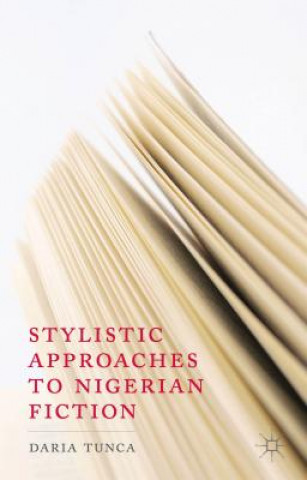
Doručení
Nákupní rádce





Nehodí se? Vůbec nevadí! U nás můžete do 30 dní vrátit
 Dárkový poukaz
V libovolné hodnotě
Dárkový poukaz
V libovolné hodnotě
S dárkovým poukazem nešlápnete vedle. Obdarovaný si za dárkový poukaz může vybrat cokoliv z naší nabídky.
Stylistic Approaches to Nigerian Fiction
 Angličtina
Angličtina
 154 b
154 b
30 dní na vrácení zboží
Mohlo by vás také zajímat


The combination of the words 'language' and 'Anglophone African literatures' generally brings to mind an aesthetic based on the use of proverbs and phrases borrowed from the writers' mother tongues. Such culturally specific features also characterize Nigerian fiction - but can this rich literary tradition really be reduced to its reliance on local languages and folklore? Answering this question in the negative, this book claims that the analysis of style in Nigerian fiction needs to be broadened to account for the range of linguistic techniques deployed by contemporary writers. Drawing on the discipline of stylistics, this study introduces a series of methodological tools to demonstrate how sustained attention to form can foster understanding of content in selected works by some of the most widely celebrated Nigerian writers of recent times - Chris Abani, Chimamanda Ngozi Adichie, Uzodinma Iweala and Ben Okri. Among the key issues addressed are the link between style and characterization, the interplay between aesthetics and ideology, and the relationship between language and representation. These different thematic approaches converge to suggest that, while the cultural specificity of Nigerian fiction cannot - and should not - be ignored, this body of works also needs to be freed from the straightjacket of critical and disciplinary orthodoxy that has too often restricted its interpretation. This book's interdisciplinary approach serves as an exciting template for future research into African and postcolonial literatures more broadly.
Informace o knize
 Angličtina
Angličtina
Kategorie




 Jak nakupovat
Jak nakupovat























